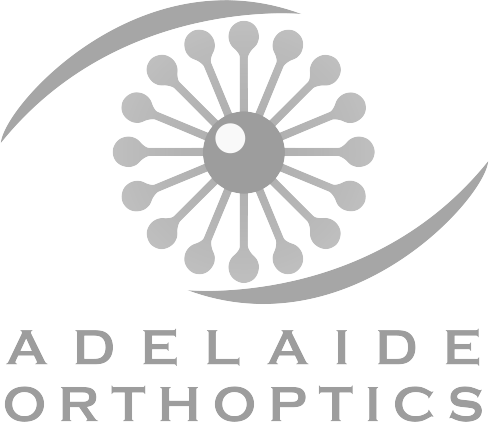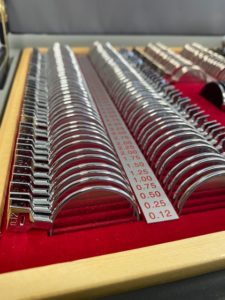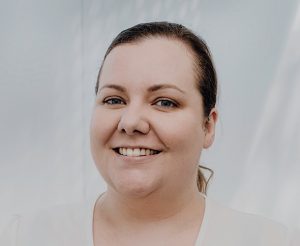Todays blog is designed to to assist with the age old question….”but what even is an orthoptist?”.
I started my training at the University of Liverpool in the UK back in 2005, and over the years I have learnt to start on the front foot about my chosen profession, so my patients at Adelaide Orthoptics will tell you that my opening statement is always….
Hi, I'm Natalie and I'm going to be your orthoptist. The best way to describe an orthoptist is as 'the physiotherapist of the eyes'. We are not eye doctors or optometrists, but work closely with both of those professional groups to assist with vision, eye alignment, eye movement and 3D improvement.
Natalie Ainscough - Orthoptist
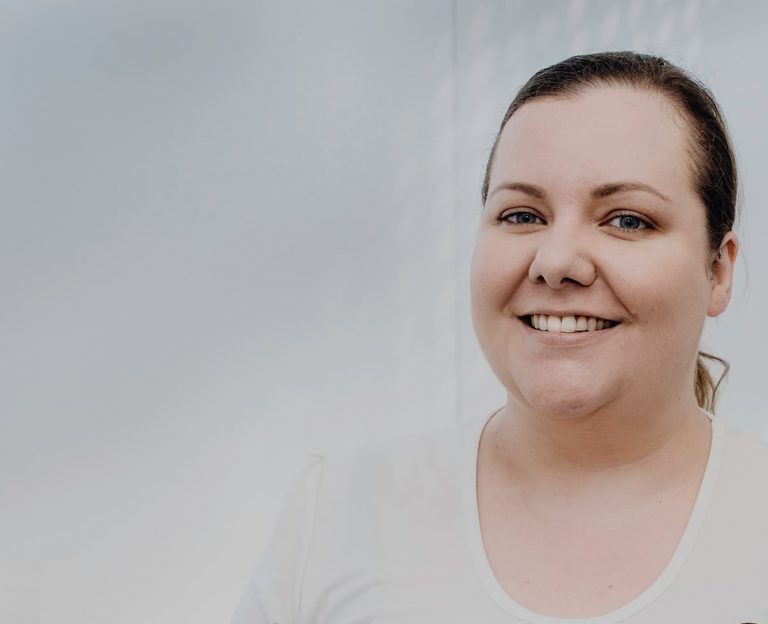
Since its 16 years since I first started my orthoptic training, I am more than happy being asked by patients and family members to explain more about my job, and how I even found out about the job in the first place (but that’s for another blog!).So please, feel free to ask!
The orthoptists at Adelaide Orthoptics focus on a few specific areas:
1.Paediatric patients with amblyopia, squint, eye movement disorders, visual discomfort and 3D issues,
2.Adult patients with eye alignment and movement issues including double vision and visual discomfort, 3D issues and unexplained blur.
3. Post-stroke or brain injury rehabilitation – we are one of few providers in Australia fitting and training patients in Peli Prisms (field expansion prisms) for people who have lost significant amounts of visual field after a stroke or brain injury.
4. Sports orthoptics – optimising eye alignment and 3D functioning for patients of all ages who are high achievers in sports.
5. Goldmann visual fields – manual visual fields for patients who find computerised fields difficult. We do these tests for ophthalmologists, neurologists and low vision professionals who are assisting patients.
Are orthoptists a type of doctor or nurse?
No, we are a type of allied health professional – just like audiologists, physiotherapists and occupational therapists.
We go to University to train specifically in orthoptics.
Book an appointment today
What is the definition of 'orthoptics'?
There is not one accepted definition of orthoptics, but the one on Fran Goldin’s website is my favourite definition.
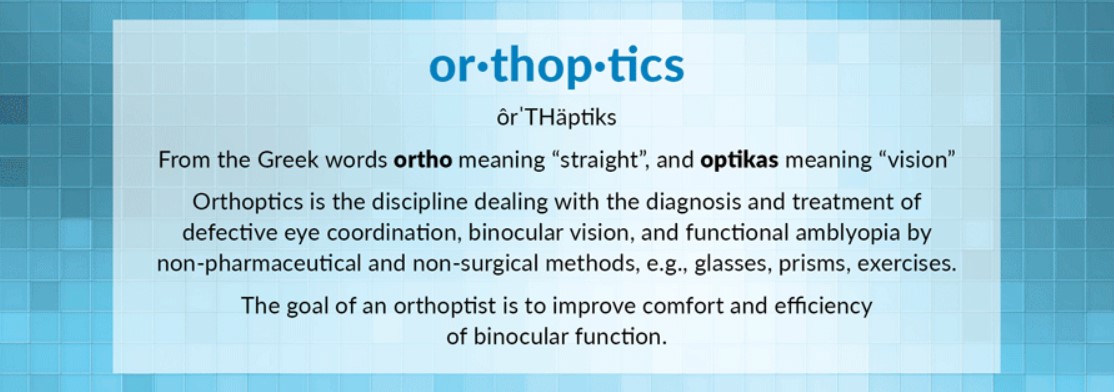
Orthoptics in itself has increased its scope of practice significantly over the years, and goes beyond the definition above as it now includes many other areas of ophthalmology that an orthoptist can chose to focus on;
Paediatrics – focused on children’s vision, squint and eye movements
Neuro-ophthalmology and rehab – focused on vision and eye movement issues caused by issues with the brain and nerves such as strokes, tumours and conditions such as multiple sclerosis.
Refractive – assisting with investigations and procedures in a practice focused on laser surgery
Diabetes – assisting with diabetic retinopathy screening
Glaucoma – performing investigations and in advanced hospital based roles monitoring stable glaucoma and ocular hypertension
Cataract – completing investigations, pre-operative IOL planning and post-operative care for cataract patients
Low Vision – assisting those patients with visual impairment
Retina – assisting in practices dealing with retinal issues, including performing investigatory tests and assisting in intravitreal injections.
Electrophysiology – performing and reporting electronic tests of the optic nerve and retinal function.
General – a combination of some/all of the above
Clinic Management – dealing with the daily management of hospital and private eye clinics
Education – teaching medical student, student orthoptists and optometrists.
Research – working in universities, hospitals and clinics focused on research delivery
There are also incredible orthoptists in highly specialised roles, such as Sandra Staffieri in her role as Retinoblastoma Care Coordinator (children’s eye cancer).
What to look for in an orthoptist?
We recommend choosing an orthoptist registered with the Australian Orthoptic Board. This means that every 2 years they have to demonstrate that they have completed sufficient amounts of ‘continuing professional development’ (CPD) to re-register for the next 2 years.
Check if your orthoptist is registered here.
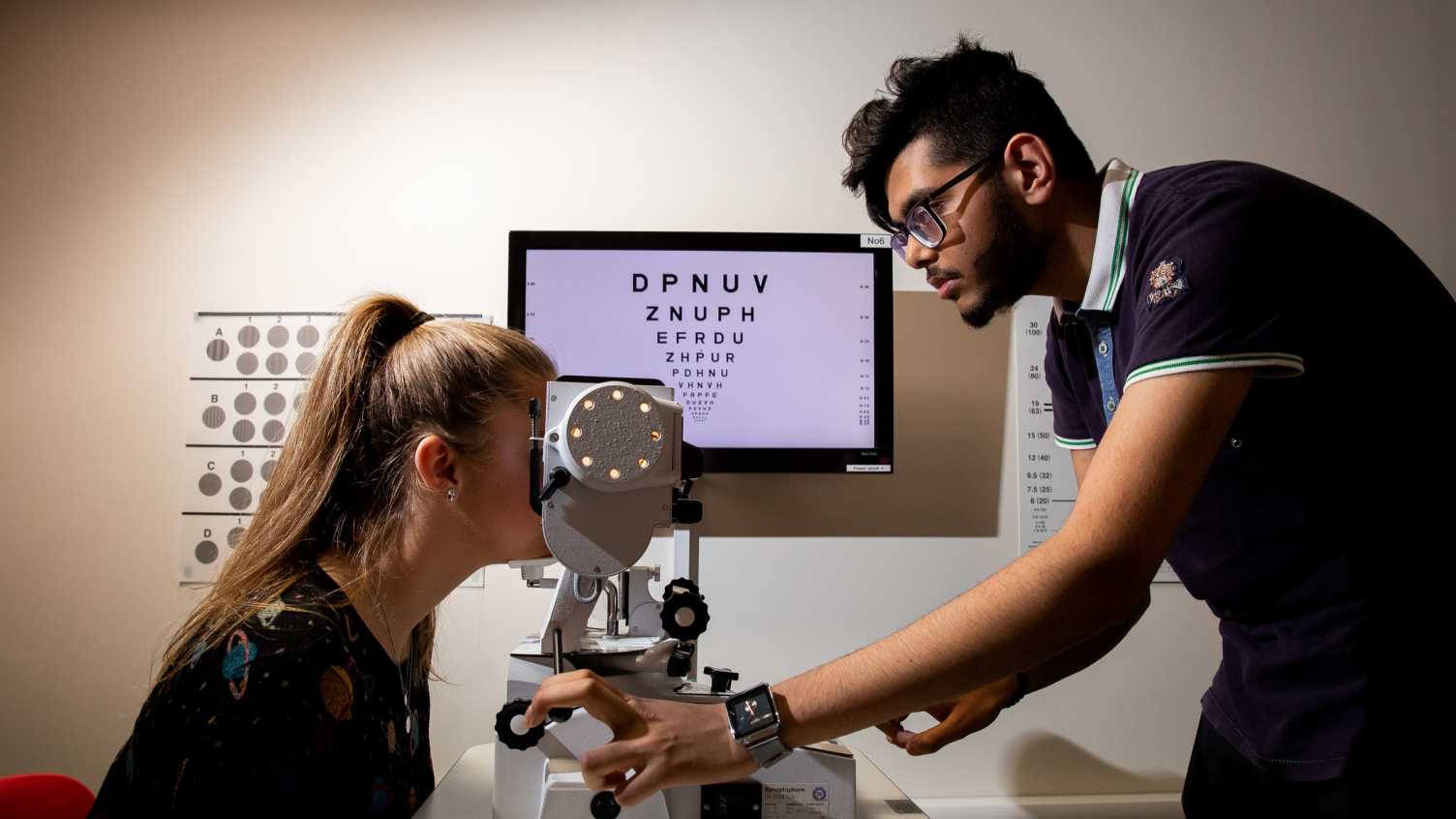
For more information about the orthoptic profession
Check out the following websites for more detail about this special and rare profession:
